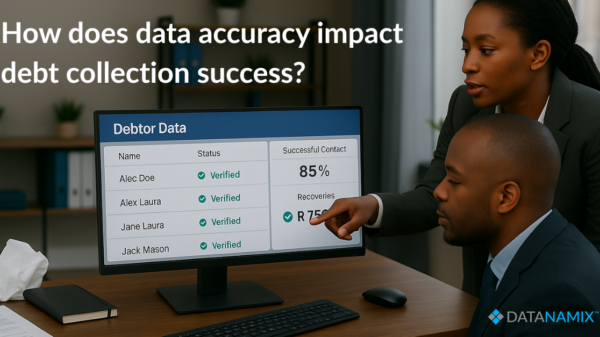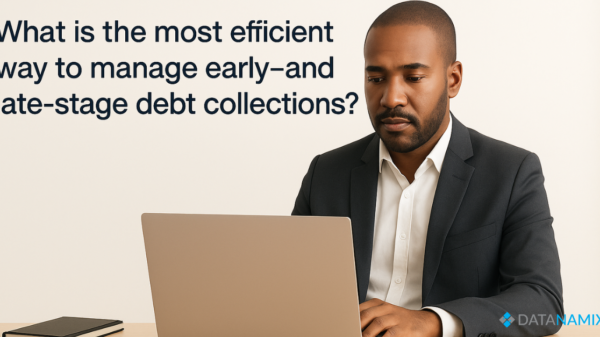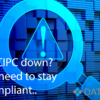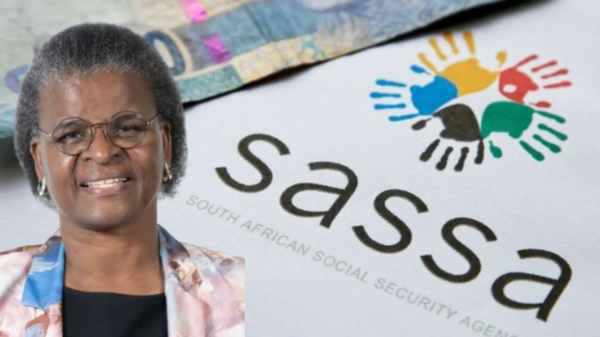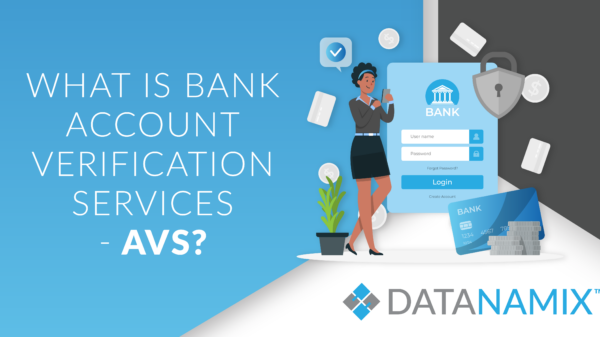If there is one thing businesses can do to prevent financial loss, reputational damage, it is to carry out a thorough due diligence exercise.
And, because we understand the importance of carrying out the necessary checks ahead of entering into an agreement or contract, we have a suite of AML sanction screening products to enable the right level of risk mitigation for every class of business – from accountable institutions bound by the FIC Act, to SMEs looking to protect their interests.
pbVerify’s due diligence product suite includes AML (anti-money laundering) sanctions screening, PEP (PIP) data, Adverse Media and Crime data – all customisable depending on your specific business needs.
Our enhanced due diligence tools will allow you to put your business in a prime position by combating the spectrum of risks associated with doing business amid today’s highly regulated business landscape.
The importance of customer due diligence (CDD)
Today’s business world is complex, digital and dynamic, as is the criminality that exists within it. It’s an unfortunate, but indisputable, reality: Fraudsters are more sophisticated than ever before.
But it’s not just the risks that come with doing business in this highly digital landscape that motivate the need for thorough checks. Businesses that fail to carry out sufficient customer due diligence (CDD) stand to be hit with severe financial penalties and reputational damage.
Accountable institutions that fail to comply with the FIC Act, which incorporates a risk-based approach to compliance elements such as CDD into the regulatory framework, may be met with these serious consequences:
- The restriction or suspension of certain business activities
- Financial penalty of up to R10 million for a natural person or up to R50 million for a legal person
- For more serious offences, the maximum penalty increases to imprisonment for a period of up to 15 years or a fine of up to R100 million
pbVerify is here to make sure our customers can confidently comply with the necessary requirements and avoid these kinds of situations, at all costs.
And here’s how…Read on to see which of our solutions are suited to your business.
BASIC AML Sanctions Screening
A perfect fit for single-owner outfits or one-man show practices (such as lawyers and estate agents), as well as small businesses, our basic AML Sanctions Screening tool allows you to access a single source of data, being OFAC (the Office of Foreign Assets Control).
The successor to the Office of Foreign Funds Control (FFC), OFAC falls under the US Department of the Treasury. OFAC administers and enforces economic and trade sanctions based on US foreign policy and national security goals against targeted foreign countries and regimes, terrorists, international narcotics traffickers, those engaged in activities related to the proliferation of weapons of mass destruction, and other threats to the national security, foreign policy or economy of the United States.
OFAC lists include the following:
- Specially Designated Nationals (SDNs) List
List of individuals and companies owned or controlled by, or acting for or on behalf of, targeted countries. It also lists individuals, groups, and entities, such as terrorists and narcotics traffickers designated under programs that are not country-specific. READ MORE - Consolidated Sanctions List
All non-SDN sanctions lists in a consolidated set of data files. These consolidated files comply with all OFAC’s existing data standards. READ MORE - Additional OFAC Sanctions Lists
In addition to its list of Specially Designated Nationals and Blocked Persons, OFAC maintains other sanctions lists. READ MORE
STANDARD AML Sanctions Screening
pbVerify’s second tier of AML Sanctions Screening tools comprises PEP, PIP and Crime Data.
These reports provide reliable and constantly updated data from Global Sanctions Lists, PEP and Crime Watchlists, which can be built into your own solution and system environment.
- Sanctions lists
Sanctions Lists from OFAC, Canada, HM Treasury, EU, Australia and many more regions and organisations globally. Supported sanctions lists include*:- United Nations
- Europe
- United Kingdom
- United States
- Belgium
- Switzerland
- Canada
- United Arab Emirates
- Australia
* Additional sanctions lists can be included on request. Please contact Support to find out more.
- PEP data
Our Politically Exposed Persons (PEP) database covers about 1 million records from every country worldwide, including family members and close associates. The PEP database is based on an agenda of worldwide elections and includes judges, military personnel and close associates.
Politically Exposed Persons, or PEPs, are individuals who hold a prominent public function. According to the FATF Guidance, PEPs also include family members and close associates.- Politically exposed persons
Individuals who are or have been entrusted with prominent public functions, for example Heads of State or of government, senior politicians, senior government, judicial or military officials, senior executives of state-owned corporations, important political party officials.
- International organisation PEPs
Persons who are or have been entrusted with a prominent function by an international organisation, refers to members of senior management or individuals who have been entrusted with equivalent functions, i.e. directors, deputy directors and members of the board or equivalent functions.
- Family members
Family members are individuals who are related to a PEP either directly (consanguinity) or through marriage or similar (civil) forms of partnership.
- Close associates
Close associates are individuals who are closely connected to a PEP, either socially or professionally.
- Politically exposed persons
Crime Watchlists
Our Crime Database includes more than 8 000 records from Interpol and the FBI. More Watchlists are being added continuously.
PREMIUM AML Sanctions Screening
The pbVerify Premium AML Sanctions Screening service is our most comprehensive tool in this suite and is used by large financial corporations and financial services providers, among others, to carry out advanced due diligence that covers all possible bases.
Comprising PEP/PIP data, WorldCompliance data and Adverse Media data, our Premium AML Sanctions Screening allows users to perform initial due diligence by screening potential clients, agents and business partners.
WorldCompliance
Containing more than 2.5 million detailed profiles, the WorldCompliance database helps clients detect individuals, organisations and vessels linked to more than 50 risk categories; including: Sanctions, Foreign Officials, and State-Owned Enterprises.
The WorldCompliance tool:
- Performs an exact, proximal, phonetic, and cultural match with every search
- Maintains a relationship tree for each profile showing family members, contacts, and business associates
- Allows for common spelling mistakes
- Searches for transliteration spelling differences
- Ranks results based on relevance and accuracy.
Adverse Media
Adverse Media – or negative news – reports include any negative information about a customer or business in question. The tool scans various sources such as newspapers, magazines, TV, radio, blogs, web articles, etc. for potentially damaging news around brand, individual, or company in the commercial world.
Adverse Media screening and monitoring is a crucial addition to sanctions and PEP scans when it comes to conducting an all-inclusive due diligence exercise. It is a primary component of KYC (Know Your Customer) and AML processes.
Glossary of terms
- Due diligence: A process that involves the investigation, review or audit of a company, business partner or individual prior to entering into an agreement or contract with the party in question. During this process, facts and information about the party in question is verified to the end of mitigating risk.
- AML: Anti-money laundering (AML) is a set of procedures that prevents money laundering. It is primarily employed by governments and large financial institutions to monitor potentially fraudulent activity.
- Sanctions screening: Sanctions screening is a check used for the detection and prevention of financial crime, in particular sanctions risk. It is the verification of names (or aliases), on Sanction lists involved in financial transactions.
- PEP: A politically exposed person (PEP) is an individual with a prominent political role, or someone who has been entrusted with a high-profile public function. Due to the position PEPs hold, they present a higher risk of involvement in money laundering and/or terrorist financing.
News & research portal for compliance applicable to the Financial Services sector, CompliNEWS, defines PEP as follows: “A Politically Exposed Person or PEP is the term used for an individual who is or has in the past (preferably 1 year after giving up any political function) been entrusted with prominent public functions in a particular country. The term should be understood to include persons whose current or former position can attract publicity beyond the borders of the country concerned and whose financial circumstances may be the subject of additional public interest. In specific cases, local factors in the country concerned, such as the political and social environment, should be considered when deciding whether a person falls within the definition.” - PIP: A prominent influential person (PIP), as above.
- Adverse Media: Also referred to as “negative news media”, adverse media is any kind of unfavourable information found on a party via various news sources, including both traditional news channels & publications, and digital sources (websites, social media platforms).
- FATF: The Financial Action Task Force (FATF) is an intergovernmental organisation that designs and promotes policies and standards to combat financial crime. Recommendations created by the Financial Action Task Force (FATF) target money laundering, terrorist financing, and other threats to the global financial system. The FATF was created in 1989 at the behest of the G7 and is headquartered in Paris. (Investopedia)
- KYC: KYC stands for “Know Your Customer” and is the process of verifying the identity of new customers. The objective of the process is to prevent illegal activities, such as money laundering or fraud, to protect companies and clients alike.
AML SANCTIONS SCREENING – REFERENCES
- CompliNEWS – Anti-money laundering (AML) focuses on prominent influential persons or politically exposed persons
- The Banking Association of South Africa – Financial Intelligence Centre Act
- Bizcommunity – FICA: Being an accountable institution and following client due diligence
- fic.gov.za – Schedule 1 Accountable Institutions
- Fica Intelligence Centre – Guidance Note 7



